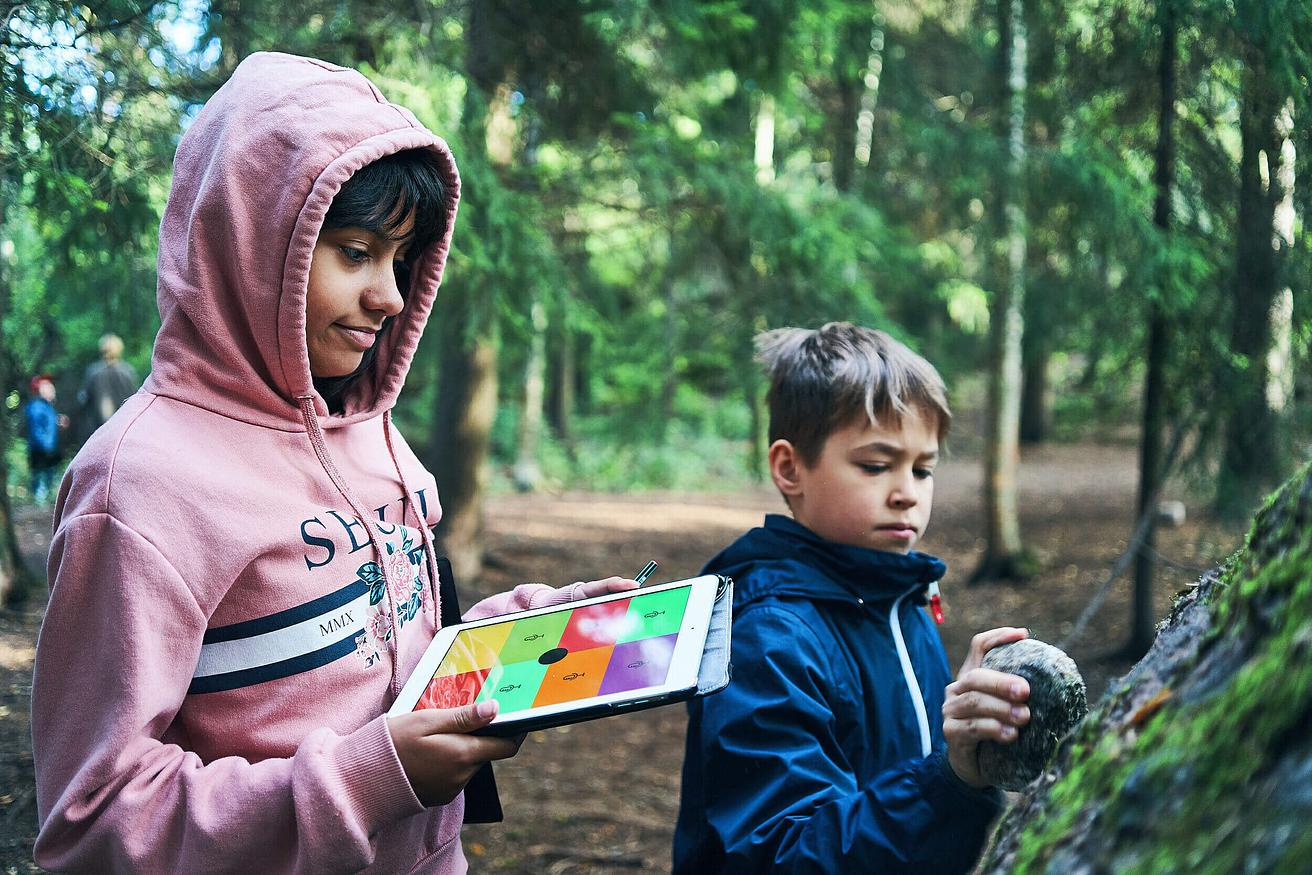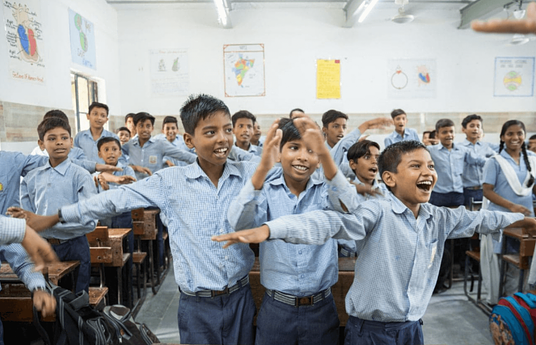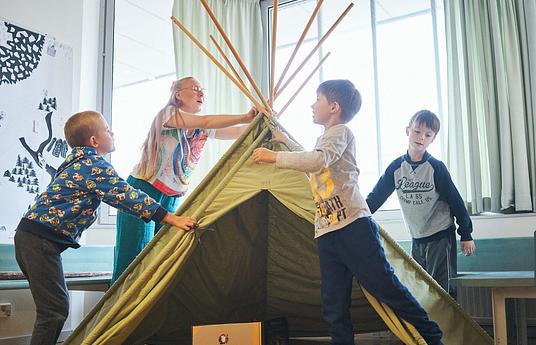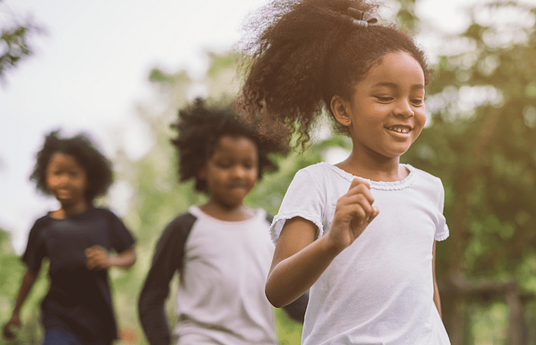In light of the COVID-19 pandemic, we need to support students' social and emotional development more than ever before. But how can we integrate SEL programs into schools in a systematic way? In our HundrED Innovation Summit conversation on social and emotional learning, HundrED's Head of Research Crystal Green sat down to talk with Paul St John Frisoli, Senior Programme Specialist at the LEGO Foundation to discuss the findings of our new Social and Emotional Learning Spotlight Report. Below you will find three highlights from the conversation.
Watch the full Summit Session
1. Social and Emotional Learning starts with the adults
"“Social and emotional learning (SEL) begins with the adults"
Crystal: “Social and emotional learning (SEL) begins with the adults. It begins with the teachers focusing intentionally on prioritizing SEL skills and communicating these moments, also with the parents.”
Paul: “Children can only be well if teachers and caregivers themselves are well because then caregivers and teachers are also able to demonstrate social and emotional competencies and create that safe, enabling environment that the Spotlight Report really talks about. So the social and emotional learning programs are only as good as the support we provide to teachers - if we're talking about social SEL programs in classrooms. Teachers not only need high quality continuous professional development on social and emotional learning, but they also need to know what it is, how to do it, and what support they can get when children are experiencing heightened signs of stress.”
"Social and emotional learning programs are only as good as the support we provide to teachers"
Crystal: “Some of the highlighted programmes are bringing in psychologists to recognise that the teachers really need a diverse support system so that they attend to their own social and emotional learning. Teachers are often expected to be everything to all people all the time, without having their own support networks in place.”
2. Social and Emotional Learning can and should be part of the curriculum
Paul: “We have been learning a lot through our programmes at The LEGO Foundation about how important social and emotional well being is, particularly in light of the COVID-19 pandemic. In fact, we just did a study of all the different grants that we have provided around the world and SEL came out on top as one of the major topics that we need to continue to address in the coming years. Right now is a moment when SEL is at the forefront in order for us to get out of this crisis for our own wellbeing. Simultaneously, we recognise that this is something that needs to be ingrained in the curriculum long term.”
Crystal: “One of the things that was so exciting for me to see in this Spotlight is that there were so many examples where the curriculum was maybe about arts, or about language or sports, but they’re creating moments within the curriculum to have students collaborate and be creative together. Through these moments, they are building their social and emotional competencies.”
"Right now is a moment when SEL is at the forefront in order for us to get out of this crisis for our own wellbeing. Simultaneously, we recognise that this is something that needs to be ingrained in the curriculum long term.”
Paul: “One thing that I thought was fascinating with the SEL Kernels approach was that they recognised that teachers have a lot on their plates already. So they thought, ‘What bite-sized things can we give to teachers that they can do in transition from one academic discipline to another?’ Teachers were able to infuse these kernels into reading or math programs - and I think that is a really innovative way to think about SEL.”
3. Social and Emotional Learning doesn’t just happen in the classroom - it’s everywhere!
Paul: “It’s necessary for SEL Programmes that there are diverse methods of delivering these programmes. We saw in the Spotlight how the selected innovations are putting SEL into sports or the arts, which is so fantastic as it’s another way for children to be able to experience these disciplines. We learned that SEL doesn’t just have to be in the classroom. It could be a whole-school approach so that it creates a nurturing environment that supports children’s well-being.”
"What we’ve been able to demonstrate in this Spotlight shines a light on why SEL helps develop that breadth of skills in students."
Crystal: “It is wonderful to think about how innovators can take advantage of the collaborative dynamics and creative activities that take place in these different ways. The selected innovations for this Spotlight are making intentional moments where students’ creative activity then becomes a place or a format for social and emotional learning to happen in dynamic ways.”
Paul: “What we’ve been able to demonstrate in this Spotlight shines a light on why SEL helps develop that breadth of skills in students. I am so excited for people to dig into the Spotlight and get inspiration on how social and emotional learning can have a real impact on children and their well-being. I think the selected innovations are going to sustain so much traction to support the scaling of programs, and we are hoping that they inspire policymakers and educators and parents around the world to translate the ambitious goals of social and emotional learning for systemic change within education systems. By doing so, we think this can support a world in which children can be free to become engaged life-long learners.”
Download the new Social & Emotional Learning Spotlight Report to learn more about the 13 selected innovators and get practical tools on how to integrate social and emotional learning into schools. This Spotlight was produced in partnership with The LEGO Foundation.




